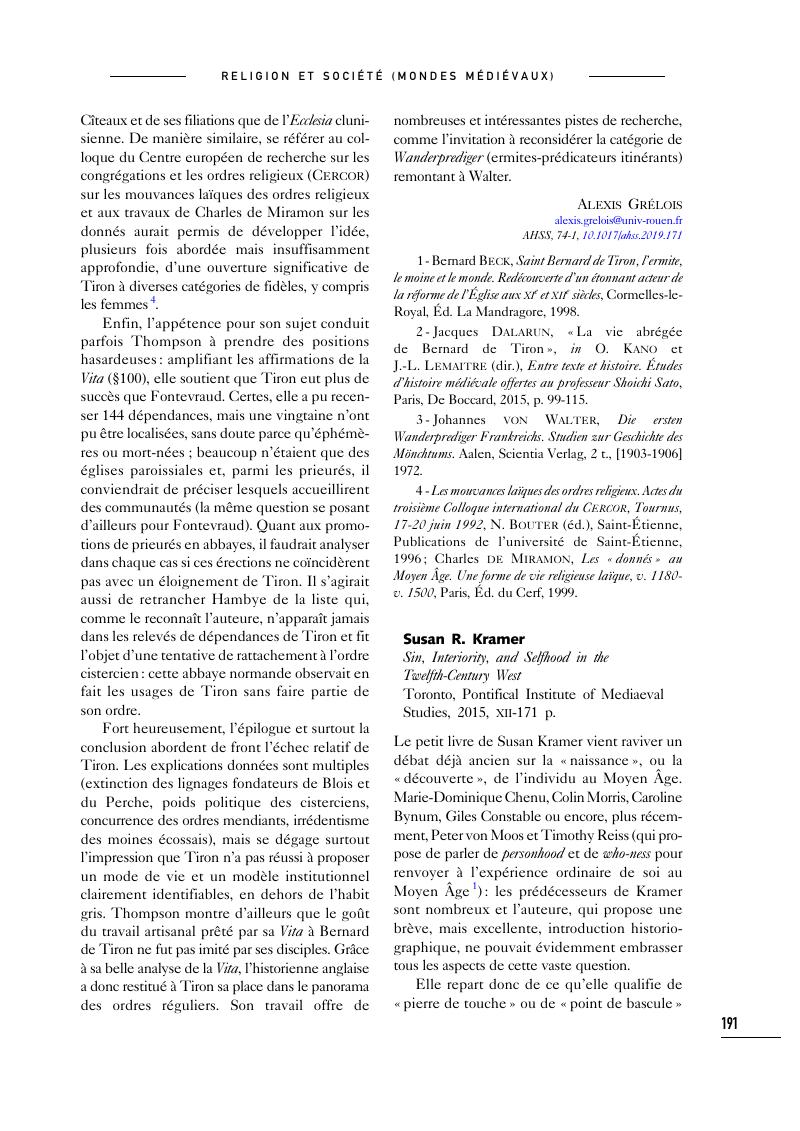No CrossRef data available.
Article contents
Susan R. Kramer Sin, Interiority, and Selfhood in the Twelfth-Century West Toronto, Pontifical Institute of Mediaeval Studies, 2015, xii-171 p.
Published online by Cambridge University Press: 07 April 2020
Abstract

- Type
- Religion et société (mondes médiévaux)
- Information
- Copyright
- © Éditions de l'EHESS
References
1 Chenu, Marie-Dominique, L'éveil de la conscience dans la civilisation médiévale, Montréal/Paris, Institut d'études médiévales/J. Vrin, 1969Google Scholar ; Morris, Colin, The Discovery of the Individual, 1050-1200, Londres, SPCK Publishing, 1972Google Scholar ; Constable, Giles, Religious Life and Thought: 11th-12th centuries, Londres, Variorum reprints, 1979Google Scholar ; Bynum, Caroline Walker, Jesus as Mother. Studies in the Spirituality of the High Middle Ages, Los Angeles, University of California Press, 1982Google Scholar ; von Moos, Peter, Entre histoire et littérature. Communication et culture au Moyen Âge, Florence, Sismel-Edizioni del Galluzzo, 2005Google Scholar ; Reiss, Timothy, Mirages of the Selfe: Patterns of Personhood in Ancient and Early Modern Europe, Stanford, Stanford University Press, 2003Google Scholar.
2 Brooks, Peter, Troubling Confessions: Speaking Guilt in Law and Literature, Chicago, University of Chicago Press, 2001Google Scholar ; Verderber, Suzanne, The Medieval Fold: Power, Repression, and the Emergence of the Individual, New York, Palgrave Macmillan, 2013CrossRefGoogle Scholar.
3 Anciaux, Paul, La théologie du sacrement de pénitence au xiie siècle, Louvain, E. Nauwelaerts, 1949Google Scholar ; Blomme, Robert, La doctrine du péché dans les écoles théologiques de la première moitié du xiie siècle, Louvain, Publications universitaires, 1959Google Scholar.
4 Robert I. Moore, « Heresy as Disease », in W. Lourdaux et D. Verhelst (éd.), The Concept of Heresy in the Middle Ages (11th-13th c.): Proceedings of the International Conference of Louvain (May 13-16, 1973), Louvain, Presses universitaires de Louvain, 1976.


